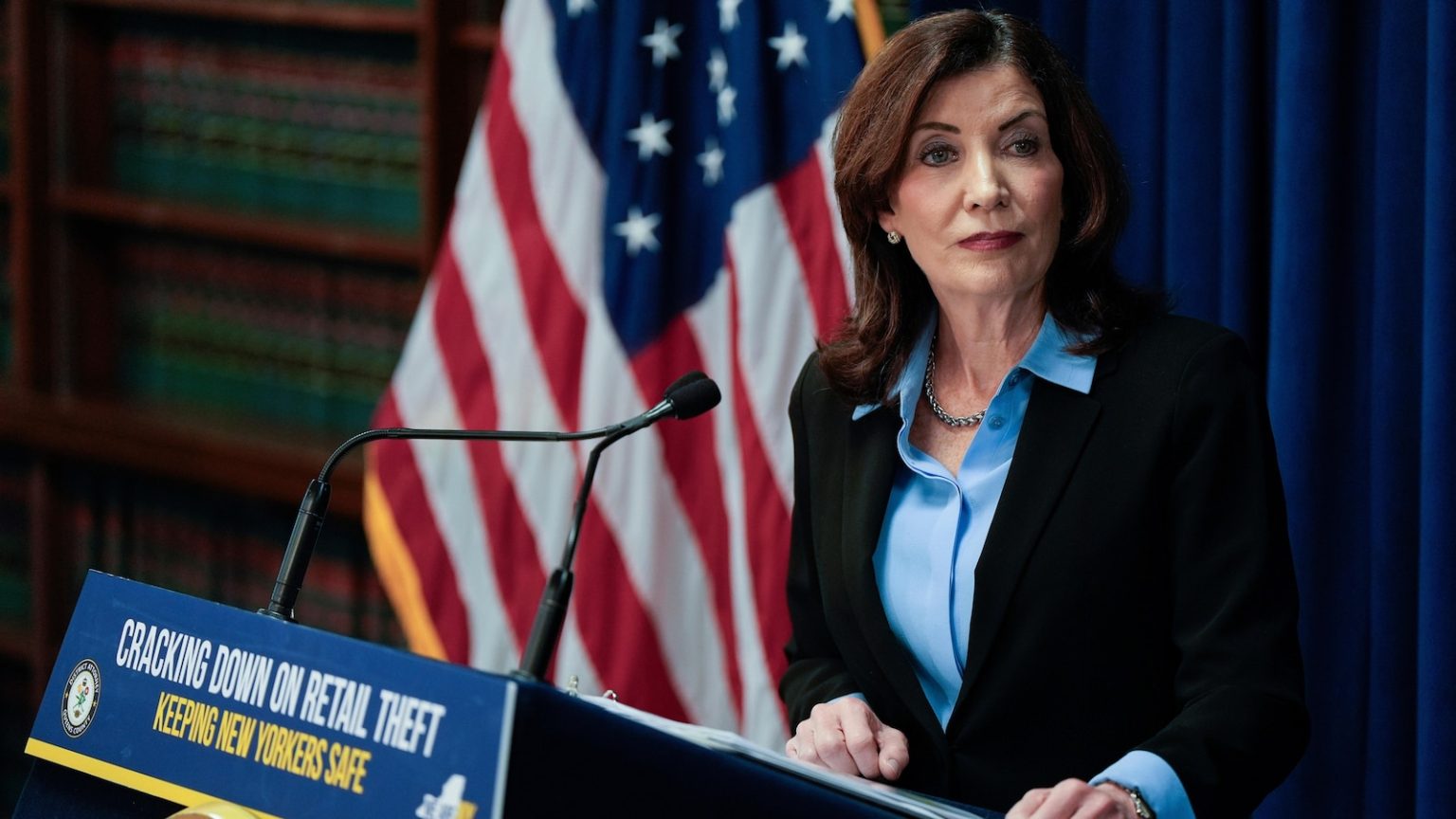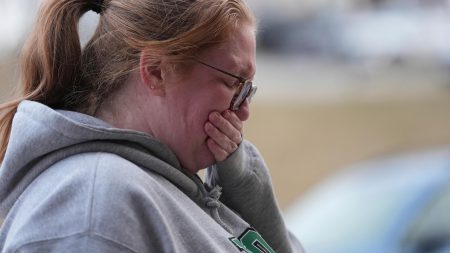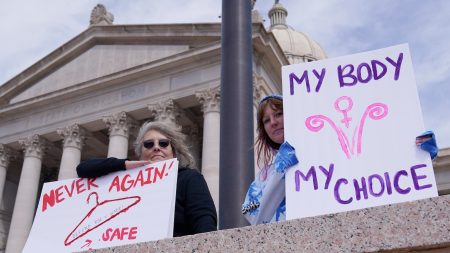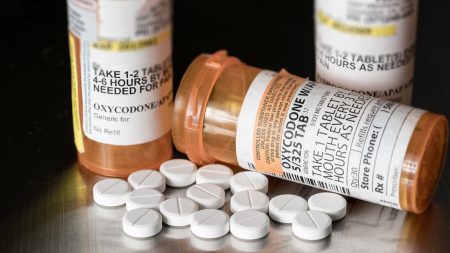A Texas Judge Fines a New York Doctor for Prescribing Abortion Pills in a Landmark Case
In a significant legal showdown, a Texas judge on Thursday fined Dr. Maggie Carpenter, a New York physician, $100,000 for prescribing abortion pills to a woman near Dallas. This case marks one of the first direct challenges to “shield laws” enacted in Democratic-controlled states like New York, which aim to protect doctors who prescribe abortion medication to patients in states with strict abortion bans. The ruling was handed down on the same day that New York Governor Kathy Hochul rejected a request from Louisiana to extradite Dr. Carpenter, who faces criminal charges in that state for prescribing abortion pills to a pregnant minor. The case has ignited a national debate over abortion access, telemedicine, and the legal battles between states with differing abortion policies.
Texas did not bring criminal charges against Dr. Carpenter but instead sued her in December for allegedly violating state law by prescribing abortion medication via telemedicine. Texas has some of the most restrictive abortion laws in the U.S., prohibiting abortions after about six weeks of pregnancy. State District Judge Bryan Gantt imposed the fine and ordered Dr. Carpenter to pay attorney’s fees, ruling that her actions violated Texas law. However, the broader implications of this case extend far beyond Texas, as it challenges the legality of shield laws in states like New York, which are designed to safeguard doctors who provide abortion services to patients in conservative states.
New York Governor Rejects Extradition Request, Setting the Stage for a Legal Battle
New York Governor Kathy Hochul, a Democrat, made it clear that she would not comply with Louisiana’s extradition request for Dr. Carpenter. Speaking at a news conference in Manhattan, Hochul stated unequivocally, “I will not be signing an extradition order that came from the governor of Louisiana. Not now, not ever.” Her decision reflects New York’s commitment to protecting the rights of doctors who provide abortion services, even to patients in states with strict anti-abortion laws. Hochul also instructed New York law enforcement not to cooperate with out-of-state warrants related to such charges, further signaling her administration’s stance on defending reproductive rights.
The case against Dr. Carpenter appears to be the first instance of criminal charges being filed against a doctor for prescribing abortion pills to a patient in another state. This sets the stage for a potential court battle that could test the constitutionality of New York’s shield law and similar laws in other Democratic-controlled states. These laws are designed to protect healthcare providers from legal retaliation when they prescribe abortion medication to patients in states where such services are banned or heavily restricted.
The Broader Implications of the Case: A Clash of State Laws and Values
The showdown between New York and Louisiana over Dr. Carpenter’s case highlights the deepening divide between states with liberal and conservative abortion policies. Louisiana, a state with a near-total abortion ban, indicted Dr. Carpenter for violating its strict anti-abortion law, which could carry a sentence of up to 15 years in prison if convicted. Prosecutors in West Baton Rouge Parish alleged that the pregnant minor who received the abortion pills experienced a medical emergency and was hospitalized as a result. The girl’s mother was also charged in connection with the case and has since turned herself in to authorities.
The legal and political clash between New York and Louisiana is emblematic of the broader national debate over abortion access in the wake of the U.S. Supreme Court’s decision to overturn Roe v. Wade in 2022. Abortion pills, which have become the most common method of abortion in the U.S., are now at the center of this fight. Conservative states like Louisiana and Texas are increasingly seeking to criminalize their use, while liberal states like New York are fighting to protect the rights of doctors who prescribe them, even across state lines.
The Rise of Abortion Pills and the Evolving Legal Landscape
Abortion pills, specifically mifepristone and misoprostol, have become a critical component of reproductive healthcare in the U.S., especially since the overturning of Roe v. Wade. They are increasingly used for both in-clinic abortions and self-managed abortions, with many patients turning to telemedicine to access the pills. This shift has led to a surge in legal battles over their distribution, as conservative states attempt to restrict their use while liberal states seek to expand access.
The case against Dr. Carpenter is a prime example of these tensions. Louisiana authorities argue that she violated state law by prescribing the pills to a minor, while New York officials defend her actions as lawful under their state’s shield law. Republican Louisiana Governor Jeff Landry has been vocal in his support of the extradition request, stating, “There is only one right answer in this situation, and it is that that doctor must face extradition to Louisiana where she can stand trial and justice will be served.” His office did not respond to requests for comment after Hochul rejected the extradition request.
The Political and Human Impact of the Case
The legal conflict over Dr. Carpenter’s actions underscores the deeply personal and political nature of the abortion debate in the U.S. For supporters of reproductive rights, cases like this highlight the importance of protecting access to abortion pills, particularly for patients in states with severe abortion restrictions. They argue that doctors like Dr. Carpenter are providing essential healthcare services to women who have few other options.
On the other hand, opponents of abortion view the case as an opportunity to enforce state laws that restrict access to abortion pills. They argue that such restrictions are necessary to protect the lives of unborn children and uphold the moral values of their states. The case also raises questions about the rights of minors to access abortion services without parental consent, as well as the role of telemedicine in providing reproductive healthcare.
As the legal battle between New York and Louisiana continues, the case is likely to set a precedent for how states with conflicting abortion policies interact in the future. It also highlights the human impact of these laws on patients, healthcare providers, and families. For Dr. Carpenter, the outcome of this case could determine whether she faces criminal charges in Louisiana or is protected by New York’s shield law. For the patient at the center of the case, it could shape her access to reproductive healthcare and her ability to make decisions about her own body.
Conclusion: The Future of Abortion Access and State Shield Laws
The case of Dr. Maggie Carpenter represents a pivotal moment in the ongoing fight over abortion access in the U.S. As more states enact laws to either restrict or protect abortion services, the legal clashes between them are likely to escalate. New York’s shield law, which is designed to safeguard doctors who prescribe abortion pills to patients in conservative states, is now being tested in court. The outcome of this case could have far-reaching implications for the future of reproductive healthcare and the balance of power between states with differing abortion policies.
The debate over abortion pills is far from over, and the outcome of this case will undoubtedly influence how other states approach similar issues. For now, Dr. Carpenter’s story serves as a reminder of the complex legal, political, and human dimensions of the abortion debate in America. As the nation continues to grapple with these issues, the rights of patients, the autonomy of healthcare providers, and the authority of state governments will remain at the center of the conversation.















